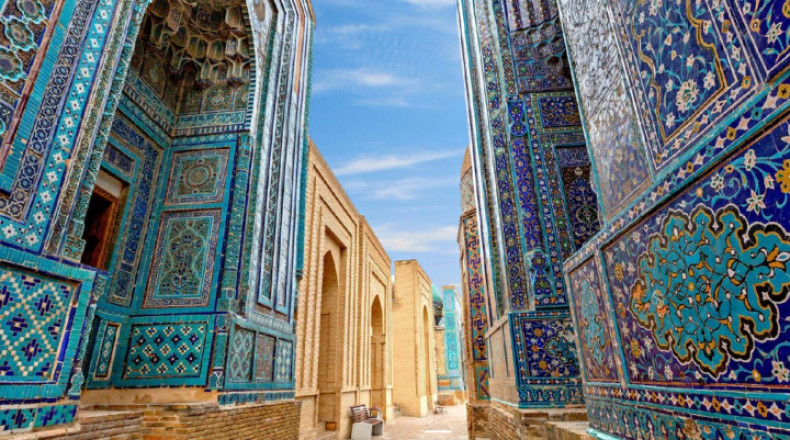
IMAM DARIMI
IMAM DARIMI
His full name is Abdullah ibn Abdurrahman ibn Fadl ibn Bahram ibn Abdussamad Abu Muhammad Tamimi Samarkandi Darimi. He is known by the titles of Hafiz and Shaykhulislam. Sources say that he was named Abdullah because he was born in the year of the death of Imam Abdullah ibn Mubarak Marwazi. Imam Dhahabi and Imam Suyuti mentioned the scholar in the ninth class of muhaddiths.
His grandfather was Darim ibn Malik ibn Hanzala ibn Zayd Manat ibn Tamim, who was a mawla of the Banu Tamim tribe and one of the scribes of the Prophet (PBUH). That’s why he was given the nisbah “Darimi”. At the same time, there are those who attribute the scholar to the village of Daram in Samarkand and based on that call him “Darami”.
Darimi’s grandfather was originally an Arab, and he came to Mawarannahr during the conquest and settled here. Imam Darimi was distinguished from others by his sharp intellect and strong memory since his youth. Information about the scholar’s family is rare in the sources. Based on the that fact that his uncle Abu Osama Ahmad ibn Muawiya and his nephew Abu Ahmad Fadl ibn Muhammad Darimi narrated hadiths, it can be said that he grew up in a family of intellectuals.
Imam Darimi received his initial education in Samarkand. In addition, he learned from scholars in different cities of Egypt, Iraq, Sham, Hejaz, and Khorasan. He performed the Hajj prayer at the age of about forty. After returning to Samarkand from the Haj pilgrimage, he worked in the post of Shaykhulislam for a certain time.
Darimi was taught by many prominent scholars of his time. Among them famous scholars such as Yazid ibn Harun, Muhammad ibn Bashshar Bundar, Muhammad ibn Yusuf Faryabi, Ismail ibn Abon Warraq Azdi, Abdullah ibn Salih Juhani, Ahmad ibn Abdullah Tamimi, Yahya ibn Main Ghatafani, Muhammad ibn Ahmad ibn Abu Khalaf, Abdullah ibn Said Kindi, and Abd ibn Humaid Keshi can be mentioned.
Abd ibn Humaid said: “Abdullah (Darimi) is our teacher. There is no one like him in the world.” Imam Abu Hatim said: “He is the Imam of his time.”
Ibn Hayyan said: “He was one of the pious Hafiz scholars.” He memorized hadiths, collected them, studied fiqh, wrote books, and narrated hadiths. He spread Sunnah in his country.”
Khatib Baghdadi said: “He is a Hafiz and one of the scholars who traveled the world. He is distinguished by his reliability, asceticism, and piety. He was a judge in Samarkand.”
During the time when Imam Darimi lived, the science of hadith developed rapidly in the territory of present Central Asia. But since the scholar mainly focused on teaching, the number of his works is not as large as that of other scholars.
The role of the famous work “as-Sunan” in the recognition of the scholar as Imam Darimi is incomparable. Some call this work “Al-Musnad”. Since Ibn Majah included in his book hadiths narrated by people who were accused of lying, some scholars emphasized that it is necessary to include Darimi’s sunan work, not Ibn Majah’s sunan, among the “Six Books”. This is because in the sunan of Darimi, there are very few weak narrators and munkar hadiths, although they are mursal and mawquf hadiths.
Most of the hadiths in Imam Darimi’s book “Sunan” are related to jurisprudential issues. The absence of ambiguous words is one of the factors that made the work popular. There is some disagreement among scholars about the name of the work. Great scholars such as Imam Dhahabi, Ibn Salah, Mulla Ali Qari called it “Musnad”, and some scholars like Alauddin Maghlatoy named it “Sahih”. However, according to Ibn Hajar and Imam Suyuti, this book is known as “Sunan” among people.
Hadiths on jurisprudential issues are collected in the work, and they are divided into topics. In the works of the musnad series, the hadiths are collected not according to the topics, but based on the narrator companions. At the same time, from the point of view of the reliability of hadiths, it can be said that authentic hadiths are collected in the work.
Imam Darimi’s work “Sunan” contains 3465 hadiths.
In addition to the science of hadith, Imam Darimi is considered to be one of the prominent scholars in the sciences such as tafsir and fiqh. He also wrote a book on fiqh called “Kitab Sawm al-Mustahadhat wal-Mutahayyirat”. Also, the sources mention the works of the scholar such as “Kitab al-Tafsir”, “al-Jami’”, “as-Thulathiyyat fil-Hadith”, and “Kitab as-Sunna fil-Hadith”.
There are different opinions about the date of Imam Darimi’s death and the place where he was buried. However, according to most reliable sources, including Khatib Baghdadi, Abu Hafs Nasafi, Shamsuddin Dhahabi, the date of death of Imam Darimi corresponds to November 18, 869 AD. In the books of some Turkish and Arab researchers, the city of Merv in Khorasan is indicated as the burial place of the scholar. However, Shamsuddin Dhahabi in his work “Tarikh al-Islam” reports that Ibrahim ibn Abdurrahman Darimi (d. 880), the scholar’s brother, died in Samarkand and was buried next to his brother. Najmuddin Umar Nasafi wrote that Imam Darimi was buried in the Chokardiza cemetery, and the emir of Samarkand Ahmad ibn Yahya ibn Asad himself prayed the Janazah for him. In the book “Samariya” it is mentioned that the grave of Imam Darimi is in the village of Ispani (now Ispandi) in Shavdar district, about 11 kilometers from the city of Samarkand. The fact that the emir of Samarkand personally prayed the funeral of Darimi and the information about the burial place of his brother indicate that the scholar’s grave is near Samarkand. In 2000, Imam Darimi mausoleum and Jami Mosque were repaired and restored in Ispandi village, Toylaq district, Samarkand region.
 O`Z
O`Z
 РУ
РУ
 EN
EN
 العربية
العربية


New comment